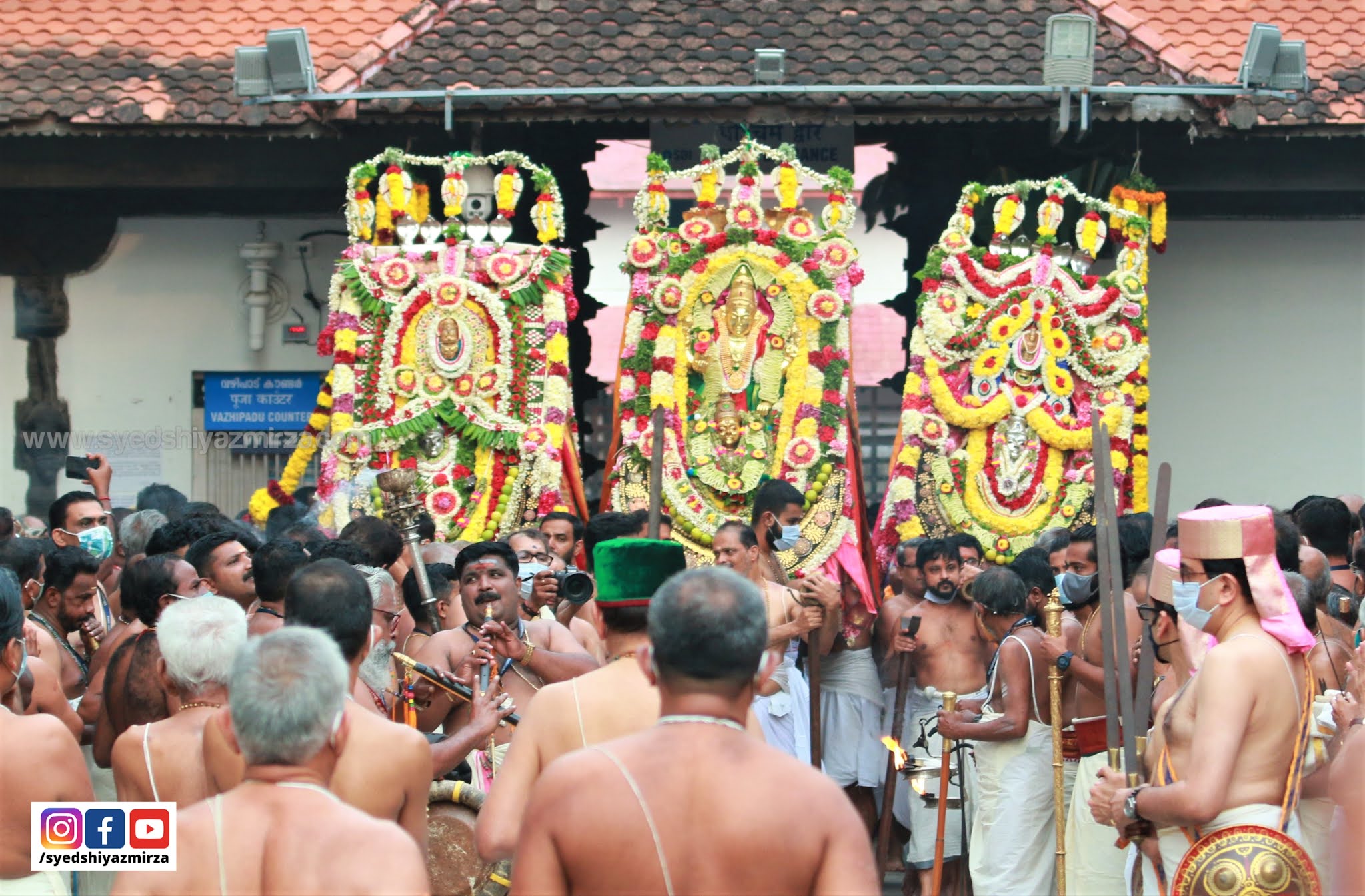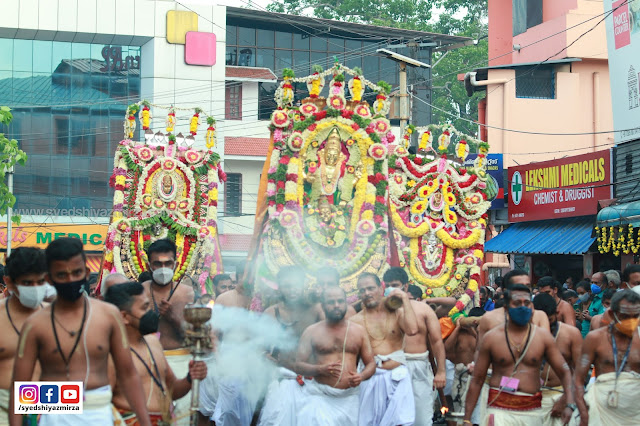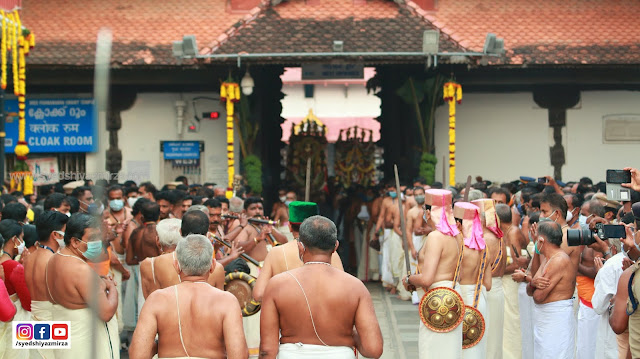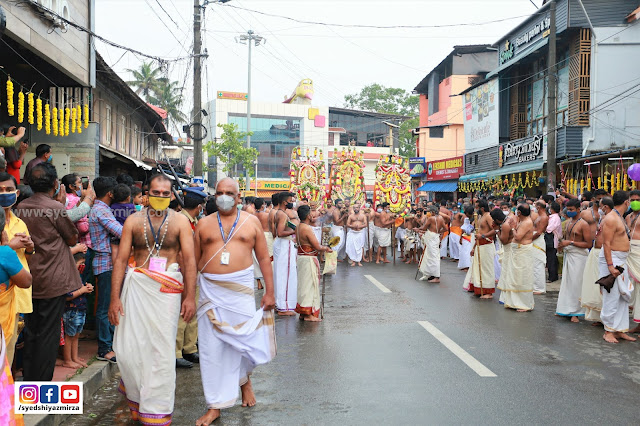One of the major rituals in the Sree Padmanabha Swamy temple, The Arattu held on November 11,2021. It was the conclusion of the Alpasi festival held at Sree Padmanabha Swamy temple.
Sree Padmanabha Temple is considered one of the richest temples in Asia and it is renowned for hidden vault and Magnificent interior and exterior architecture excellence.
Alpasi festival is one of the great events in this temple which usually falls either October or November every year.
The spectacular and devotional event starts from the west nada which is one of the main gates of Sree Padmanabha Swamy temple and is going through the Thiruvananthapuram International Airport and proceeds to Sanghumugham beach for the concluding rituals.
During these days the airport remains closed for nearly five hours. Arattu means holy bath which happens due to the immersion of deities in the sea. The head of the Travancore Royal family with a sword in his hand leads the procession throughout the event.
Mounted police and battalion of armed police with guns and swords in hand are also the main attraction of the arattu. Every year thousands of devotees wait on both sides of the road to welcome the procession seeking the blessings of Sree Padmanabha Swamy.
This historic sight is one of the main attractive events in Thiruvananthapuram and it attracts many tourists from India and outside the country. In adherence to the covid 19 protocol the participants wore masks and they marched to the seashore of sanghumugham keeping social distancing.
Idols of Sree Padmanabha Swamy along with Thiruvambadi Krishna and Narasimha Moorthy was taken out through the western gate of the temple and those idols are carried on Garuda Vahana throughout the procession.
After the covid made gap of one year the procession held this year without mounted police and police band. Priest and temple administrative members followed the procession chanting the hymns which praises Lord Krishna.
Shri. Moolam thirunalRamavarma, current head of the Travancore royal family led the procession wearing a traditional green silky cap and carrying a ceremonial sword.






















.jpeg)

0 Comments